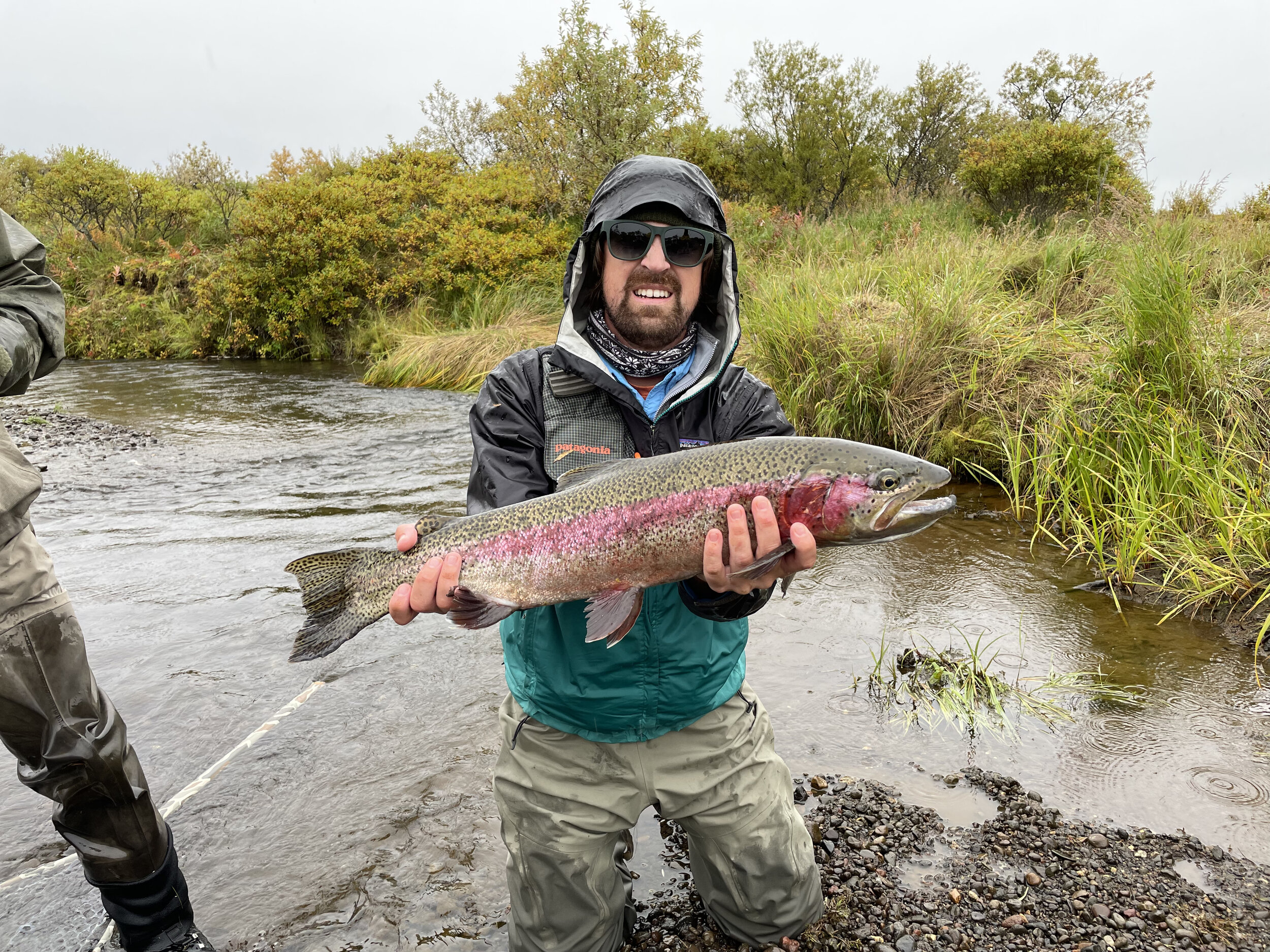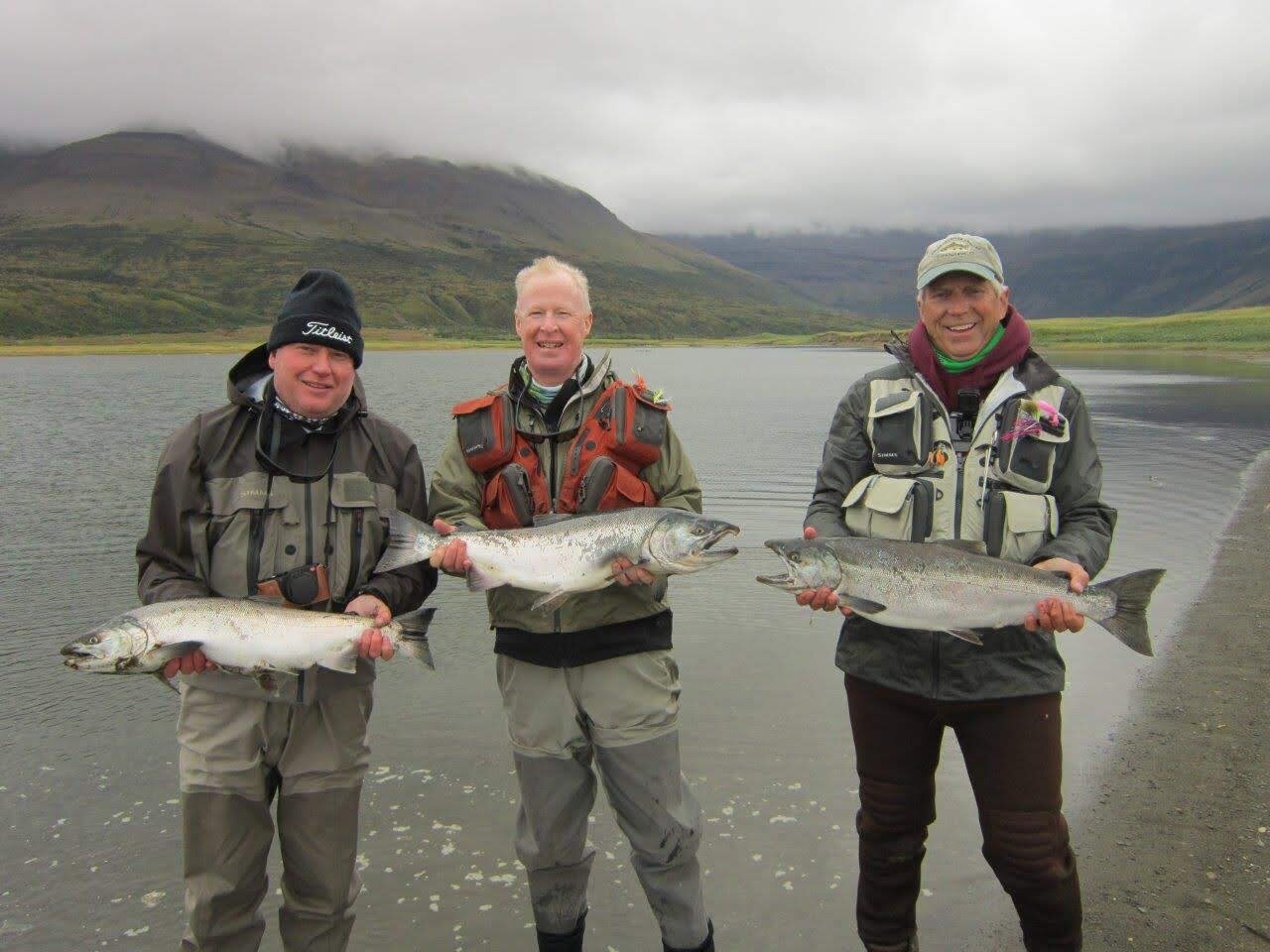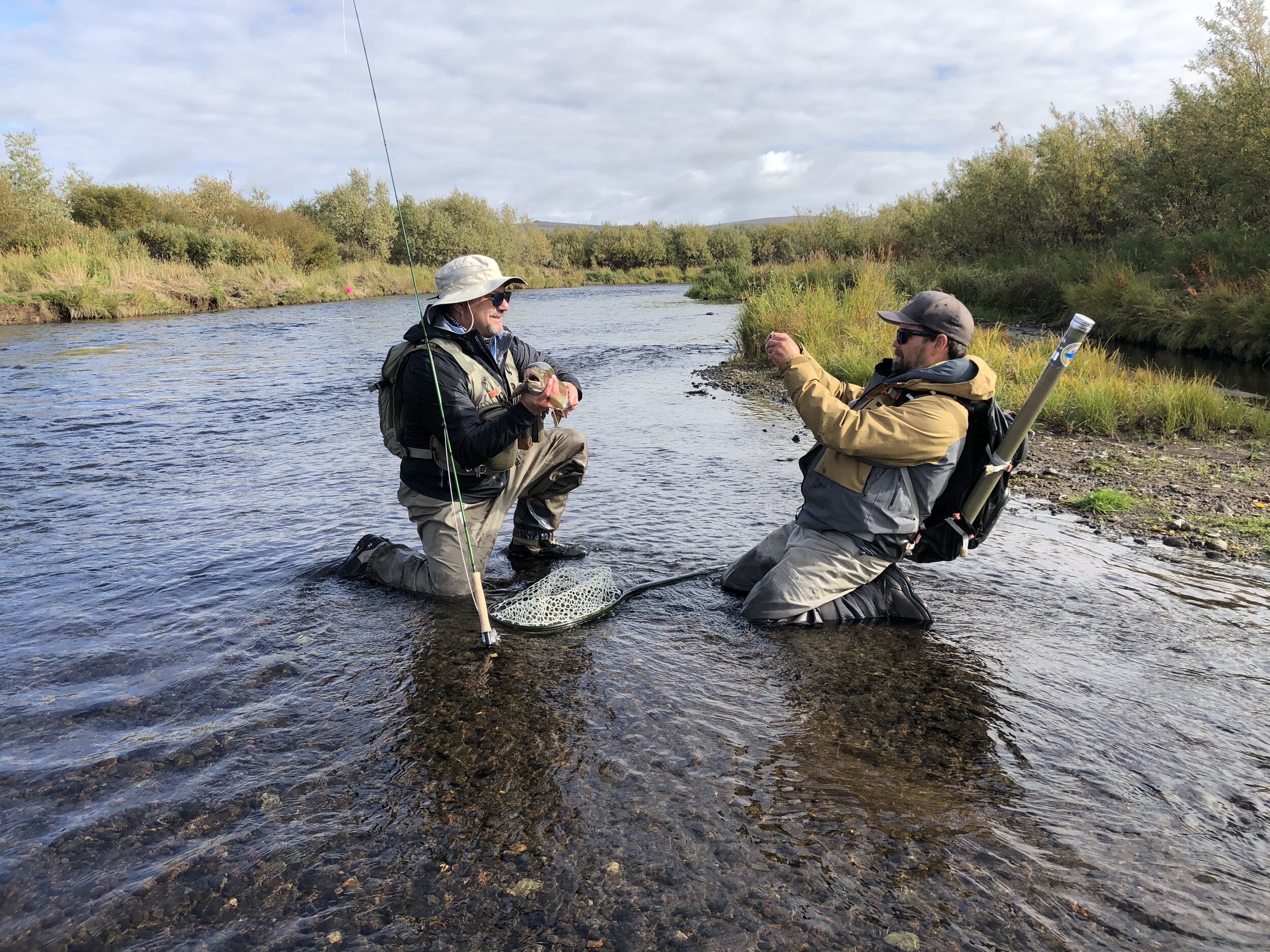Living in the UK, I learned that one of the first things any self-respecting Brit does is find the pub closest to home that serves as a “home away from home” of sorts. They refer to this as their “local.” It’s not just a bar, it’s a place where one can go for a pint, reliable (if unspectacular) food and a crowd of people that is comfortably the same or different, depending on preferences.
Fly fishers go through a ritual similar to finding a local, albeit devoid of ale and food, (though I’ve known several anglers who eat and drink quite well on the water). Also, other people are typically blissfully absent. We call it our “home water” instead of our “local.” But, like a good local, it serves as your “go to” when you don’t want to leave things to chance.
Unfortunately, after repeated visits yielding memorable results, locals and home water become hallowed ground that must be guarded against the marauding hordes who are undoubtedly lying in wait to invade armed with video games, 5 weights or (gasp!) spinning rigs. Dependable repetition replaces the wonder of your initial discovery and, as humans do, we get cranky about sharing what we’ve settled on as “ours.”
Over the last seven or eight years (and particularly during the Pandemic), I found my new home water. Like any decent home water, it’s secluded enough to entail a bit of effort but not so far away that I ever think twice about going there. In the last seven years there have only been two times when other vehicles were parked at the trailhead when I arrived. Once, about three years ago, it turned out to be a duck hunter and his dog. Happily, he didn’t bother my fishing and I don’t think I bothered his hunting too much, although I did have to yell a couple times to let him know there was someone down in the creek who was passionately opposed to getting shot.
The other instance was last week. Somewhat to my dismay, it was another fly fisherman. My first clue was when the water became muddy even though it wasn’t raining and hadn’t for weeks. The second clue was a complete absence of fish in all the usual spots. After about a quarter mile of wading I came around a bend and spied my nemesis engrossed in tying on a new fly. He undoubtedly left his last fly in the top of a tree as I do on a regular basis on this creek. It’s good fishing but the vegetation has claimed at least two or three boxes of flies from me over the years.
I quietly retreated and started making my way back downstream. I reflected that seven years of exclusive access to a fine stretch of water had always seemed to be, like most things in my life, more than I deserved. I decided to explore the creek downstream from where I usually started. I had fished downstream a few times but never with serious effort or focus since I knew where good fishing typically began. Besides, the hike in to my usual starting spot and the wading from there were long enough as it was. But, I had an appointment for a physical the next week and, like we do, I was deluding myself into believing that a week of disciplined eating and extra exercise could nullify 51 weeks of sin. So, I committed to hiking a mile or so downstream and exploring a significant chunk of new water.
Downstream, the creek is more featureless, being largely flat and predominantly shallow. Spotting fish requires much more stealth coupled with intense prayers for a hatch with rising fish. The usual educated guess of looking for braided water or deep holes with drop offs is largely unavailable. In other words, it is very different fishing from upstream where, honestly, I can get away with some degree of sloppiness in my wading, casting and presentation.
Unlike my exercise intensity for most of the year, I am always amazed by how disciplined and focused I can be when catching a trout is at stake. I know that a 4.0 grade point average is no longer the height of academic achievement but it was when I was in school. I am confident that I would have been a 4.0 student if I applied half as much effort to learning calculus, physics and French as I do to sizing up a trout’s likely responses to different flies and drifts.
By about halfway through the new water, I concluded that my fellow fly fisherman had done me a great favor by beating me to “my” spot. Downstream was a whole different set of challenges and scenarios. I did not catch as many fish as I normally did upstream, but most of the fish I caught were caught exactly the way I envisioned catching them before starting my cast. Any fly fisher worth his or her salt will tell you that this is where satisfaction comes from. As Ted Leeson puts it
“The accidental trout fails to satisfy because it is an unrepeatable phenomenon, it means nothing but that accidents happen…a fish of this sort doesn’t count; it has, at best, a sort of fluky entertainment value, like a tee shot that caroms off the clubhouse for a hole in one.”
By early afternoon, I made my way back to my usual starting point and was reminded once again that a couple hours is plenty of time for fish to get over one intruder and be blissfully ignorant of the next. I caught several more fish but noticed that I was fishing mechanically and reflexively, as I often do anymore. My mind was not focused on the fish before me, but on the ones that delighted me back downstream that morning.
In my working days, I often said I did most of my work when I was out running, where I could be free of interruption and distraction. The rest of the day was just execution. On the other hand, fly fishing’s great value has always been in its ability to distract me completely from any other problems. It is problem solving at its most enjoyable. But, in order for it to stay fresh and to maximize enjoyment, one has to seek out new problems to solve. Perversely, that becomes less likely to occur the more familiar you get with your home water.
My friend Pat once said, “Life is better than comfort.” The comfort that draws us back over and over to our home water can numb us to the reason we fell in love with fly fishing in the first place. Next time you find someone else ensconced on water you have come to call your own, don’t sulk. Be generous enough to give him or her the space to experience what you did the first few times you fished there. Seize the opportunity to venture away from “comfort” and toward life.














